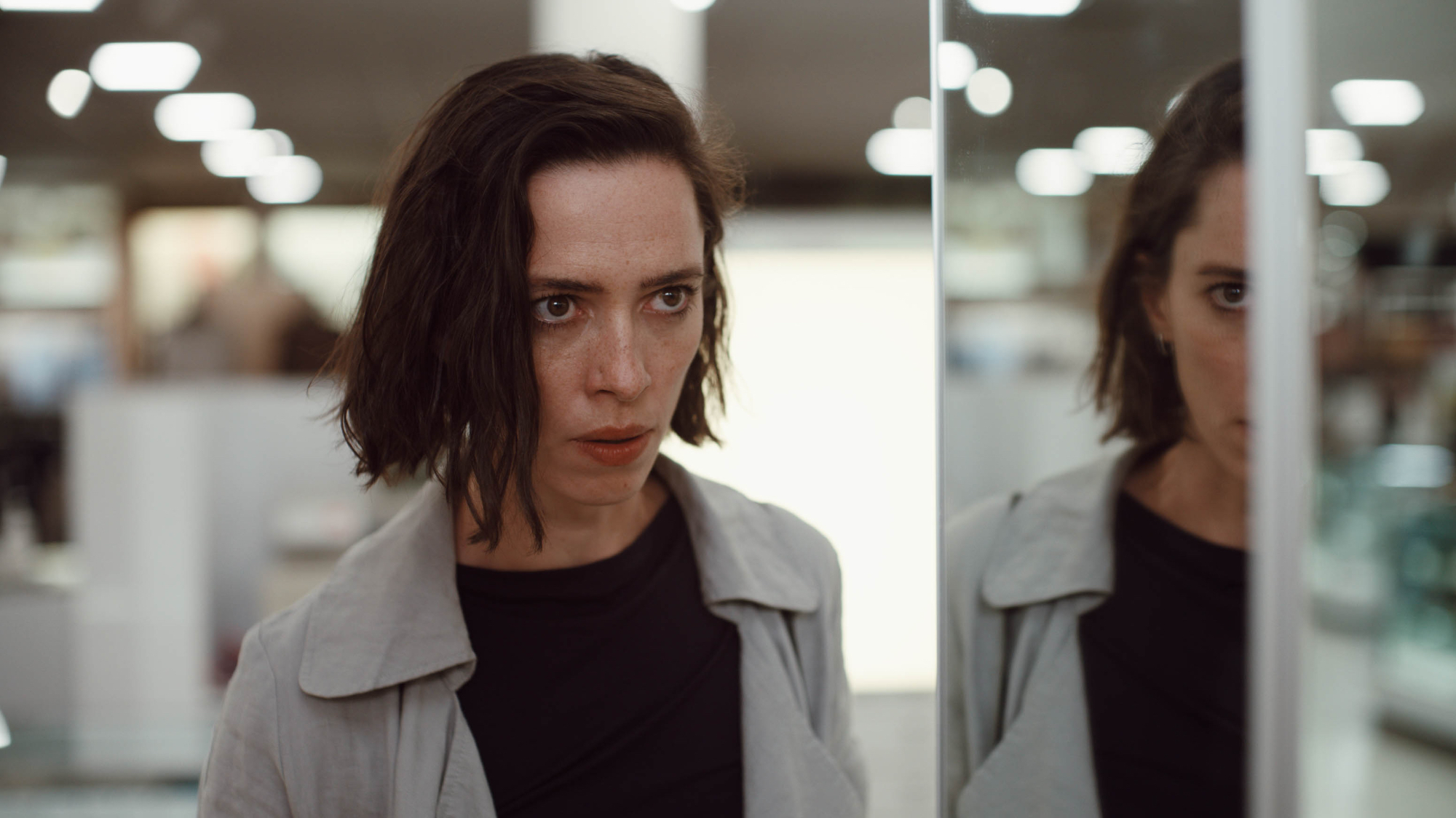‘Resurrection’ Movie Review [Sundance 2022]: Rebecca Hall Stuns in an Otherwise Disappointing Thriller With No Thrills
Resurrection lies somewhere between a serious thriller and a movie full of camp. However, writer/director Andrew Semans gets caught in between the two. As a result, Resurrection is unsure what direction to proceed in, making for a confusing piece of storytelling. The Night House actor Rebecca Hall delivers a sensational lead performance that elevates the film but doesn’t fix its issues.
Margaret can’t run from the past forever in ‘Resurrection’

Margaret (Hall) has a successful job and a seemingly ordinary life. She’s raising her daughter, Abbie (Grace Kaufman), who is about to turn 18 years old and move away for college. However, Margaret’s organized life unravels into pure chaos when she starts seeing a man that she believes is from her past named David (Tim Roth).
The more that Margaret sees David at seemingly random locations, the more paranoid she becomes. These moments terrify Abbie and begin to push her away. Margaret is sure that David is there to ruin her happy life. She’s willing to do anything necessary to protect the life that she built for herself.
Writer/director Andrew Semans pursue strange commentary on trauma and family
Resurrection introduces Margaret as a mother who loves very deeply but doesn’t hide insecurity well. She has sex with a man from work as an outlet for her mounting stress. Margaret is the type of character that doesn’t let anyone past her emotional walls, including the audience. Resurrection teases the past and rebirth of its lead character, as she takes on drawing for the first time in 20 years, but refuses to let anyone see it.
Margaret has nightmares that continue to get worse over time. Semans’ screenplay gives a hint at a particularly disturbing one that includes an infant. It’s clear that her greatest fears are tied to her family. Margaret’s overbearing tendencies continue to grow into extreme paranoia, not giving her daughter the benefit of the doubt as she grows into adulthood.
Resurrection comes to a head when David’s presence follows Margaret. Semans doesn’t initially reveal whether her accusations are true or if they’re part of an illusion. The screenplay explores toxic relationships and Margaret places that blame on David. She alienates herself from the life she built, destroying it to do what she thinks is right. Every character goes through their own resurrection of sorts, staying true to the film’s title.
Rebecca Hall is the highlight of ‘Resurrection’
Resurrection‘s greatest strength lies with Hall. She delivers a phenomenal performance as Margaret that is often heart-breaking and deeply complex. Hall delivers a lengthy monologue that completely grips the viewer. It’s a significant moment of realization for Margaret, but it’s also the greatest scene in all of Resurrection. Hall’s nuanced performance digs under the skin.
Semans frontloads the story, placing Resurrection‘s most fascinating elements in the first half of the film. He builds a sense of mystery and intrigue as to what’s really going on. However, he reveals his cards far too soon, diminishing all of the pre-established tension. The remainder of Resurrection has a stark tonal shift into a totally different film. Things get rather violent and bloody, but the narrative stops dead in its track to make its finale work.
Resurrection competently builds tension in the beginning, but quickly reduces Margaret’s journey into something much less meaningful and engaging. Hall delivers the top-notch level of performance that audiences have come to expect from her, although it’s not enough to stop the narrative from sabotaging itself. Resurrection is far less than the sum of its parts.


